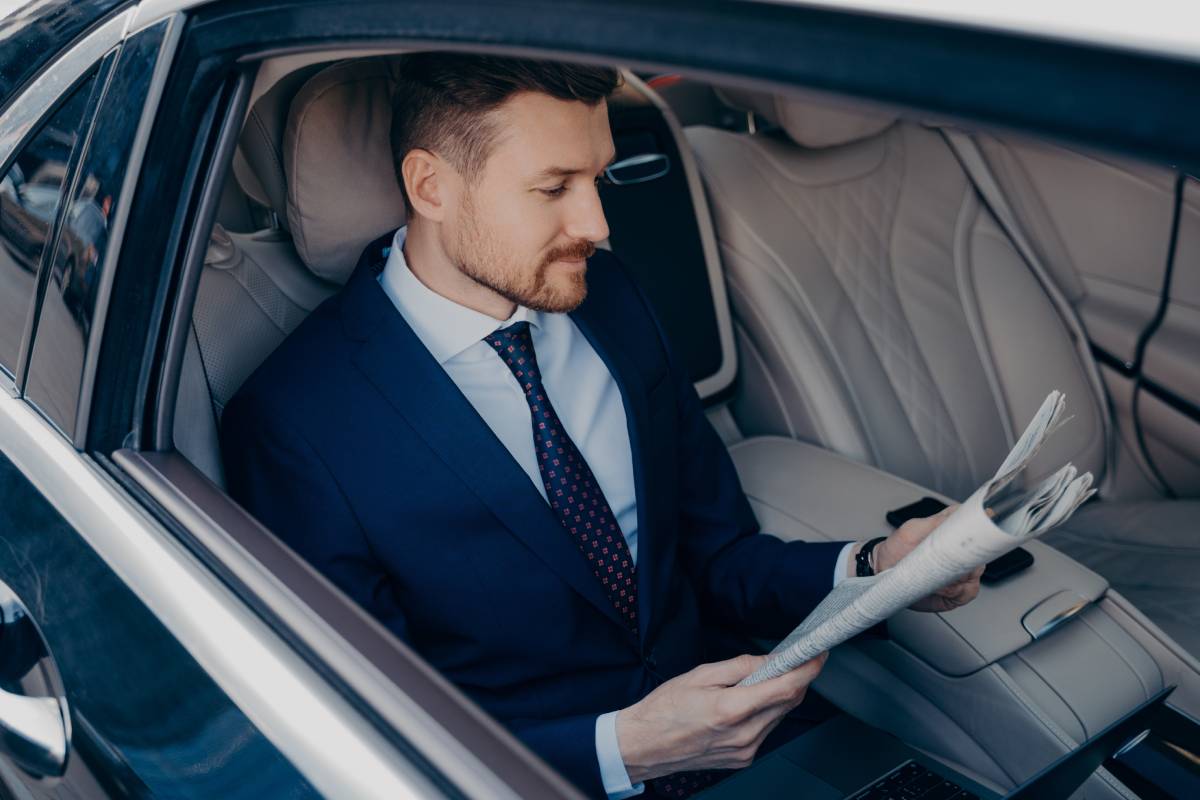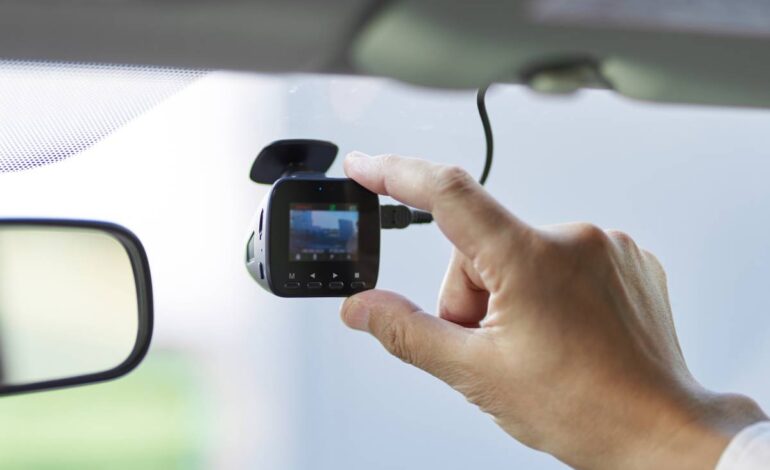
Are Dash Cams Worth It? Wireless & Parking Explained
Dash cameras, or dash cams, have become one of the most popular car accessories in recent years, capturing everything from scenic drives to unexpected accidents. But are they really worth the investment? Can you get a wireless dash cam, and will it still work when your car is parked? Understanding how dash cams work and what features matter most can help you decide whether they’re a smart upgrade or just another gadget.
Why people buy dash cams: the real benefits
Dash cams do three core things well:
- Evidence for accidents and disputes. A clear recording of an incident eliminates “he said / she said” arguments. Police and insurers often accept dash-cam footage as helpful evidence.
- Protection from fraud. Staged collisions, “crash-for-cash” scams, and opportunistic door-dings are real. A recording can show intent and timing.
- Security & documentation. Footage can document vandalism, hit-and-runs, or suspicious people near your vehicle. It’s also useful for capturing unexpected events (wildlife crossings, meteor sightings, etc.).
For many car owners, that added layer of protection and peace of mind is reason enough to install one, especially when your cherished car deserves every bit of extra care and attention.
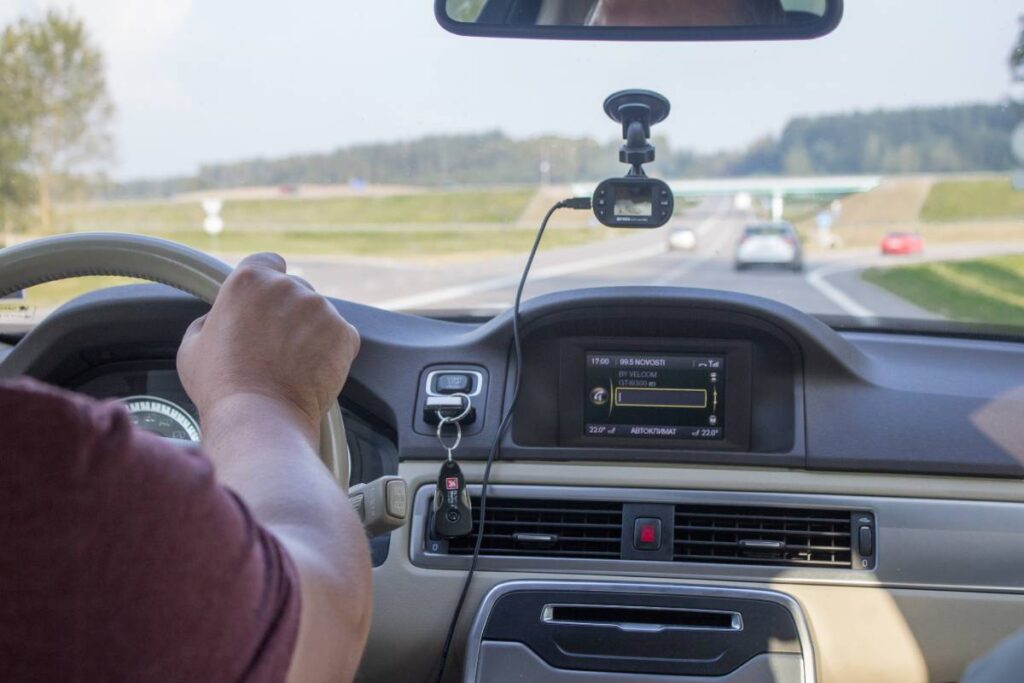
Are dash cams worth it? The cost vs value
The true value of a dash cam depends on how, where, and how often you drive.
- City drivers and commuters face more traffic, more minor collisions, and higher chances of parking lot damage — making dash cams a smart investment.
- Rural or highway drivers may want footage for wildlife incidents or documentation of long road trips.
- Fleet operators and rideshare drivers benefit from reduced liability, improved driver accountability, and fewer insurance disputes.
- Recreational vehicle owners often install dash cams for safety and trip recording while travelling across the country — especially useful on long scenic routes or in unfamiliar areas.
- Occasional drivers or those who park in low-risk areas might not find it as essential, but the safety net is still valuable.
Typical Costs and Returns
A solid single-lens dash cam starts around $100–$150, while advanced dual or 4K systems with parking mode and cloud features can exceed $400. Add professional installation and accessories, and the total might reach a few hundred dollars.
Still, that’s minor compared to potential costs from an accident claim or a hit-and-run repair. One clear recording can easily save you thousands in insurance and legal expenses.
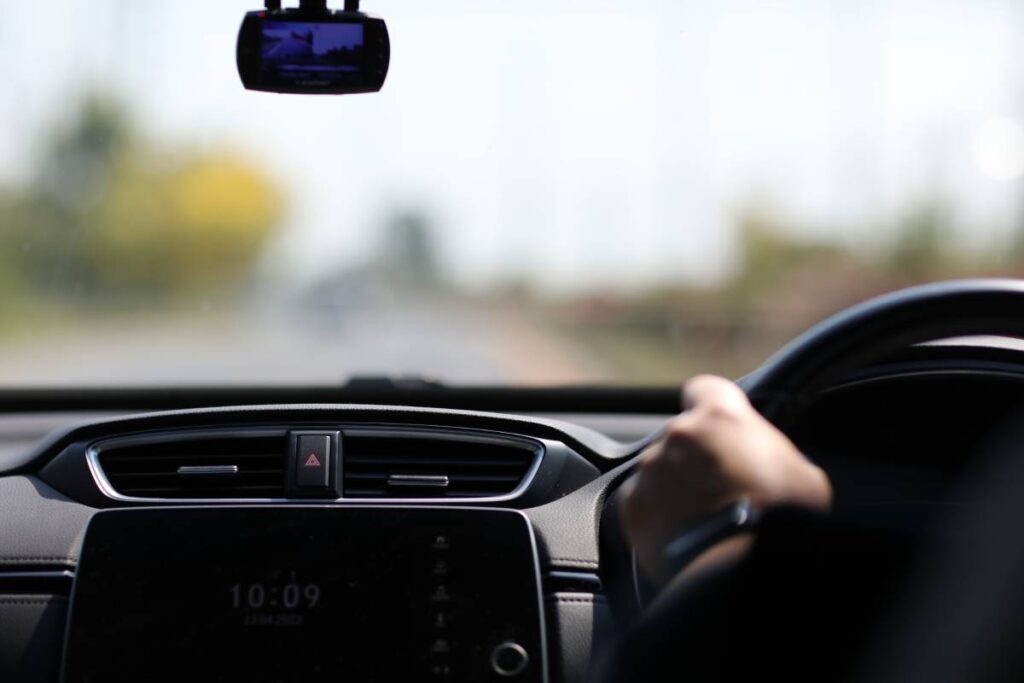
Can dash cameras be wireless?
Yes, but “wireless” means different things depending on what you want:
1. Wireless for connectivity (Wi-Fi / Bluetooth)
Many dash cams include Wi-Fi or Bluetooth so you can:
- Stream or download footage to your phone.
- Adjust settings through a mobile app.
This removes the need to remove the SD card to retrieve video. However, these cameras still need a wired power source while driving.
2. Truly wireless power (battery-powered)
There are dash cams with built-in batteries that can operate without a wired power connection. They’re easy to install (stick-and-go) and great for renters or those who don’t want permanent wiring. Downsides:
- Short runtime — typically 20–60 minutes of recording after the car is turned off, depending on resolution and features.
- Heat sensitivity — batteries can degrade faster in hot climates and may be restricted on airline transport.
3. Wireless rear/side cameras
Some systems use a wireless link between front and rear cameras to simplify installation. “Wireless” here typically means video is transmitted via a proprietary radio link, but both cameras still need power (the rear camera often wired to reverse light or a local power source).
4. Cloud-connected “always online” units
Higher-end models offer cellular connections or use your phone’s hotspot to upload clips to the cloud. This can offer live alerts, remote video access, and theft deterrence. Expect subscription fees.
Bottom line: You can have wireless convenience (Wi-Fi/Bluetooth) and wireless video links; truly wireless power solutions exist, but they trade off recording time and dependability. For 24/7 protection, hardwiring or a dedicated external power source is still the reliable choice.
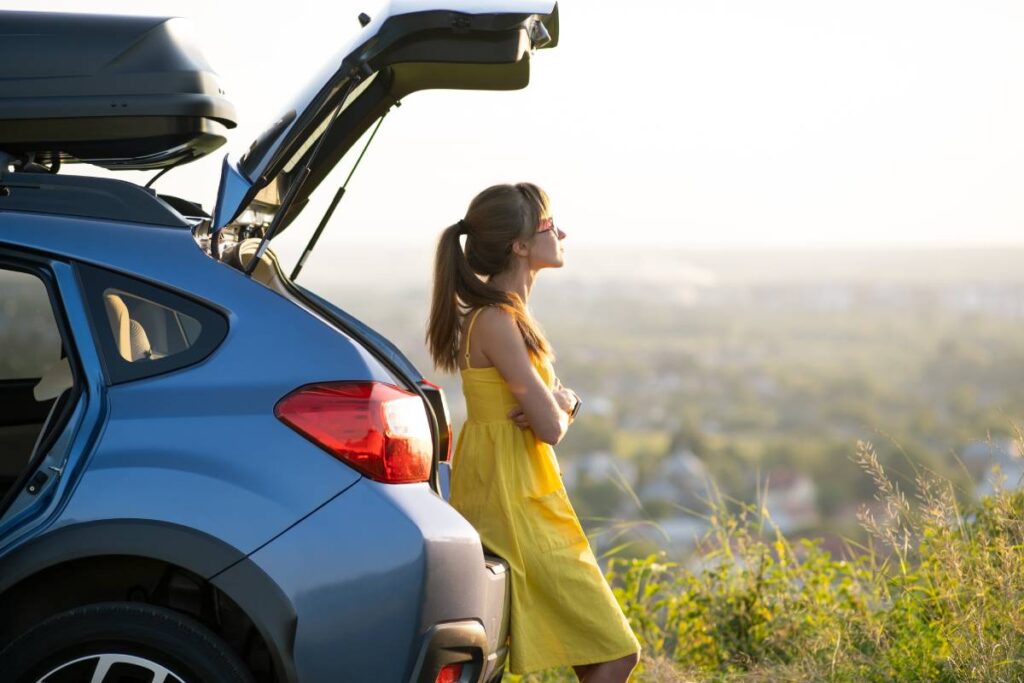
Do dash cams work when a car is parked?
Yes, many dash cams offer a parking mode, but how well it works depends on power and model:
Parking-mode types
- Motion-triggered recording: The camera wakes and records when it detects motion near the car. Good for capturing people approaching or bumping the vehicle.
- Impact (G-sensor) triggered: The camera stays in low-power standby and begins recording if it senses a collision or significant vibration.
- Time-lapse or continuous low-frame recording: Some units record low-frame-rate video continuously (e.g., 1 fps). When an event is detected, they switch to normal frame rate and save the incident.
Power options for parking mode
- Hardwired connection (recommended): A dash cam can be wired to a fused constant-power source via a hardwire kit. This allows true 24/7 parking surveillance without draining the chassis battery if done correctly (fuse cutoffs, voltage protection).
- External battery packs: Dedicated dash-cam batteries (or “parking packs”) attach to the camera and provide many hours or even days of parking monitoring. They avoid wiring and preserve the car’s battery.
- Internal battery: Some cameras use a built-in battery, but the runtime is short, so parking protection is limited.
Practical limitations
- Battery drain risk: Improper hardwiring or long parking periods can drain the car battery. Use voltage cutoff features or professional installation.
- Recording duration: Motion and impact triggers only record brief clips; continuous recording will consume storage quickly.
- Heat and cold: Extremely hot or cold weather affects battery performance and the camera electronics; footage could be lost or hardware damaged in extremes.
- Legal/privacy: In some jurisdictions, recording audio without consent or capturing private property may have legal ramifications. Know local laws.
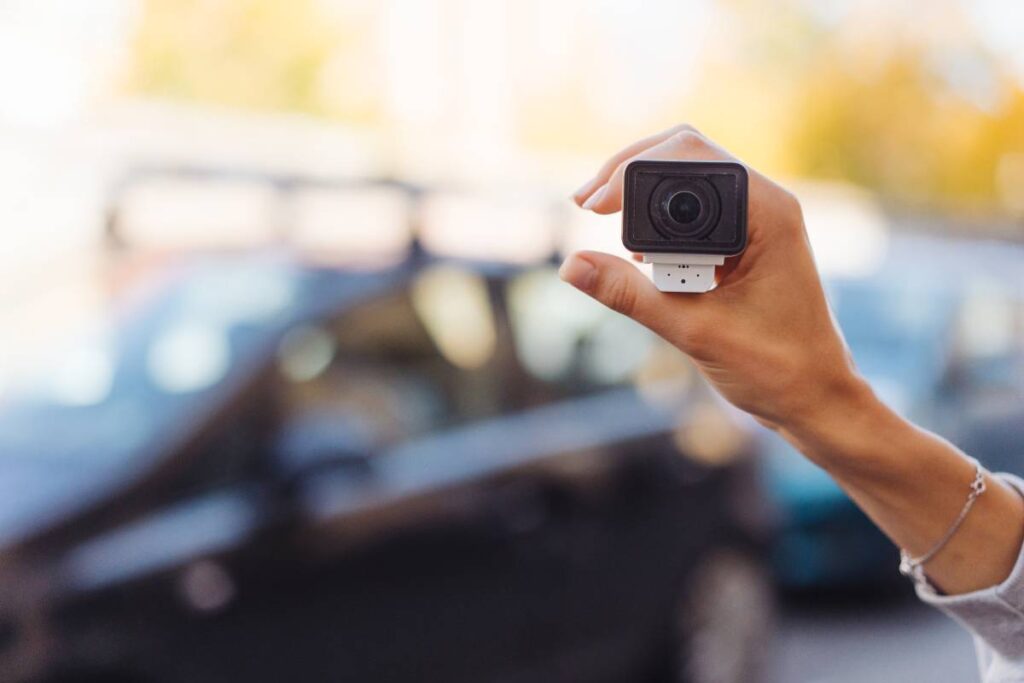
What to look for when buying a dash cam
If you decide to buy, prioritise features that match your needs:
- Resolution & night performance: 1080p is baseline; 1440p+ gives better detail. Look for good low-light/infrared performance.
- Parking mode & power options: If you want parked protection, choose a model with reliable parking mode and hardwire or external battery compatibility.
- Loop recording & file durability: Ensure seamless loop recording and robust file-saving for crash protection.
- G-sensor & GPS: G-sensor tags incidents; GPS gives speed and location metadata, useful for evidence.
- Dual-channel options: Front+rear or interior-facing cameras for rideshare drivers.
- Storage & SD support: Check max SD card size (128–512GB common) and whether the camera supports high-endurance cards.
- App & connectivity: Wi-Fi transfer is handy, but don’t pay extra for an app-only experience with poor reliability.
- Build & heat rating: For hot climates, look for models rated to higher temperatures or with capacitor-based power systems.
- Warranty & support: Reputable brands often offer better firmware updates and support.
Installation: DIY vs Professional
You can install many dash cams yourself using the included power cable. However, for constant power or a neater setup, professional installation is worth considering.
Professional installers can:
- Hardwire your dash cam safely.
- Integrate parking mode without draining the battery.
- Hide cables for a cleaner appearance.
If you’re in Australia, trusted automotive specialists like Bankstown Sound.com.au can recommend the best dash cam setups, provide expert installation, and ensure your system is configured correctly for parking surveillance. They also stock a wide range of models with Wi-Fi, GPS, and high-resolution video, ideal for both daily drivers and fleets.
Conclusion: Should you get one?
For most drivers, yes, a dash cam is a worthwhile investment. It’s relatively inexpensive insurance against disputes, fraud, and damage. If you park in high-risk areas or want 24/7 protection, choose a camera with robust parking mode and plan for either hardwiring or an external battery pack. If you value simplicity and portability, a battery-powered, Wi-Fi-enabled unit might be a better fit, just accept the trade-offs in parked coverage.
Ultimately, whether a dash cam is worth it comes down to your risk exposure, budget, and how much peace of mind is worth to you. For many, the answer is a clear “yes.”




